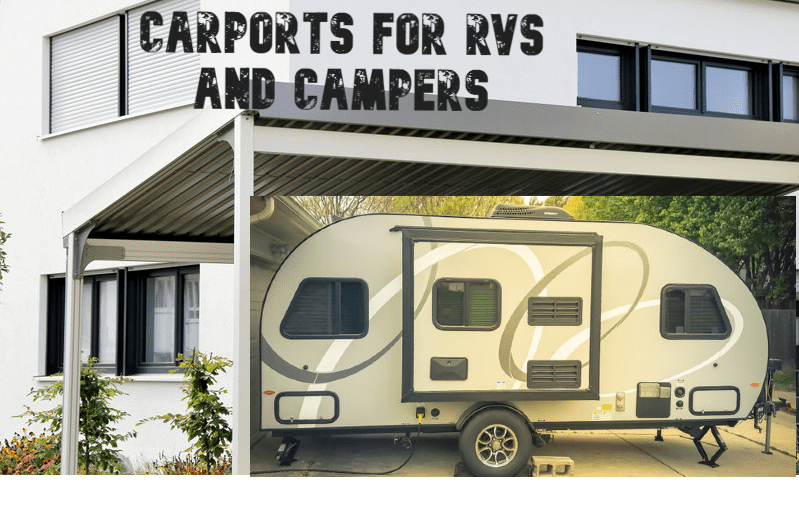If you own an RV or a camper, it’s a good idea to have a designated place to keep it during the period when you’re not going to use it.
Keeping your RV protected from the elements will help you maintain its condition. Speaking of, a fully enclosed shelter for the purposes of security may be an even better idea.
Luckily, there are tons of companies out there that make carports for RVs and campers. These companies often allow you to customize the size and design of your carport before buying it, so you can be sure that whatever you get will actually fit the RV you have.
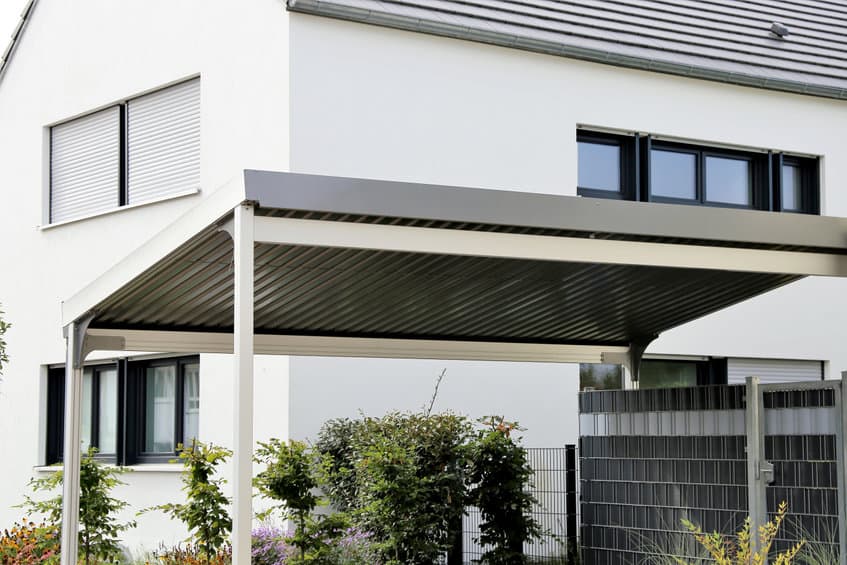
Today, we’ll be checking out seven popular carport brands that you might want to consider if you’re in the market for an RV shelter.
Have a look at our RV carport buyer’s guide, so you can be sure that you’re making the right choice for your needs.
RV Carport Buyer’s Guide
If you want to make sure your RV carport will meet your expectations, you must know in advance what your requirements will be before you make a purchase.
To that end, here’s what you should consider before buying a carport for your RV or camper:
Do I Need a Carport For My RV/Camper?
Before deciding to buy a carport for your RV, it’s worth taking a bit of time to determine if you really need one to begin with.
How necessary is it to have the extra shelter?
Obviously, it’s not absolutely necessary for you to have a carport for your RV, but having one can certainly provide you with several advantages.
A carport can keep rain and snow off of your RV and prevent it from rusting out prematurely, and it can also protect it from falling debris like hail or broken tree branches.
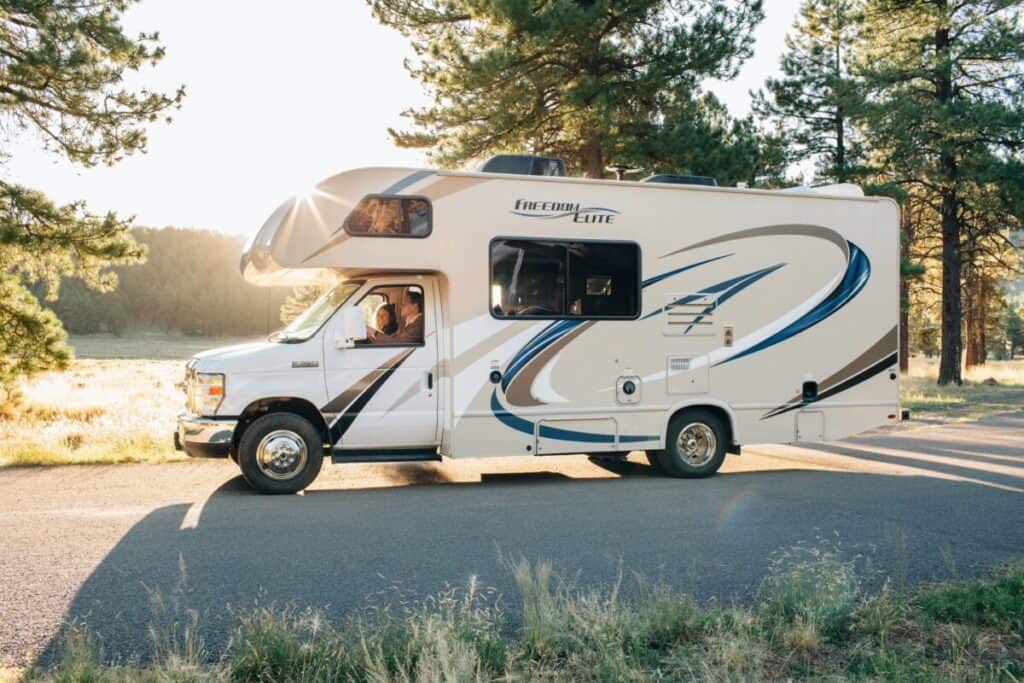
In addition, having some extra protection from direct sunlight can help preserve your RV’s paint job and prevent it from fading or cracking.
Overall, having a carport for your RV isn’t strictly necessary, but it can do a lot to help you keep your RV in good shape and preserve its value.
What Class Is My RV?
When looking for an RV carport, it may help you to know what class your RV fits into. There are three RV classes (A, B, and C), and RVs are grouped into one of these three classes based on their overall design.
Here’s how the classes break down:
Class A RVs are the largest class of RV you’ll see on the road. These RVs often use heavy-duty truck or bus frames as their base, or they may occasionally use purpose-built RV frames.
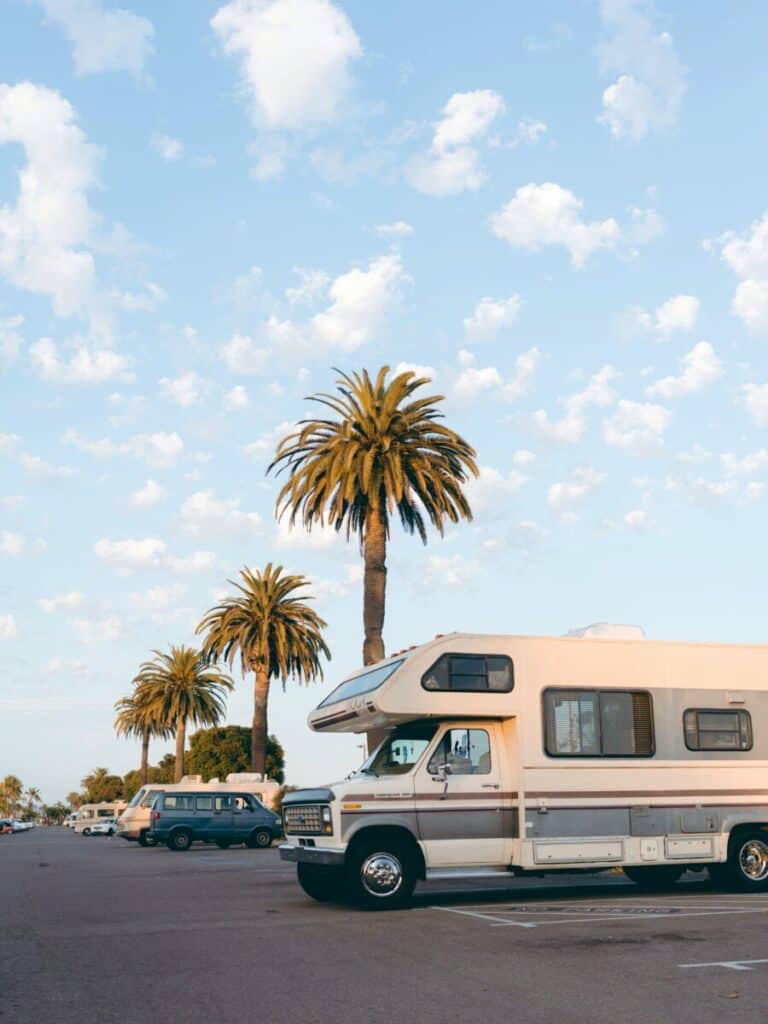
Class A RVs feature the most interior space of all RV classes and are generally the most expensive and luxurious class of RV you can buy. It’s typical of a Class A RV to have two or more slide-out sections that can be used to increase the livable space inside.
Class B RVs, however, is the smallest RV class you can buy. This class typically resembles a cargo van, and indeed, many Class B RVs have converted versions of existing vans like the Mercedes Sprinter and the Ram ProMaster.
Class B RVs still comes with everything you need to make an RV livable, including a kitchen, bathroom, and living/bedroom, but these rooms have to be extremely compact thanks to the relatively small size of the vehicle. For example, it’s common in such RVs to have the toilet, bathroom sink, and shower all occupy the same space.
While Class B RVs may be the smallest class available, they’re also the least expensive. In addition, they’re also a lot easier to drive, and they’re better in terms of gas mileage than either Class A or Class C RVs.
Class C RVs are essentially the middle ground in terms of size between Class A and Class B RVs. You can spot a Class C RV by the fact that they have a separate cab for the driver and passenger, and by the presence of the sleeping area that extends over the top of the cab.
A Class C RV is the best choice for you if you want more space and luxury than a Class B RV provides, but don’t to have to pay the same top-dollar prices that you would have with a Class A RV.
If you’re wondering how exactly the three classes compare in terms of average sizes, the table below lays it out:
| 33 feet | 20 feet | 28 feet | |
| 9 feet | 8.5 feet | 9 feet | |
| 10 feet | 9 feet | 10 feet |
What Will I Use My Carport For?
Obviously, you’re going to use your carport to shelter your RV, and there are various reasons to do so. One of the reasons that applies to you might make a difference in terms of which carport is right for you.
If you’re mainly interested in getting a carport to shelter your RV from the elements, you’ll be fine with something that just has a roof and a strong frame.
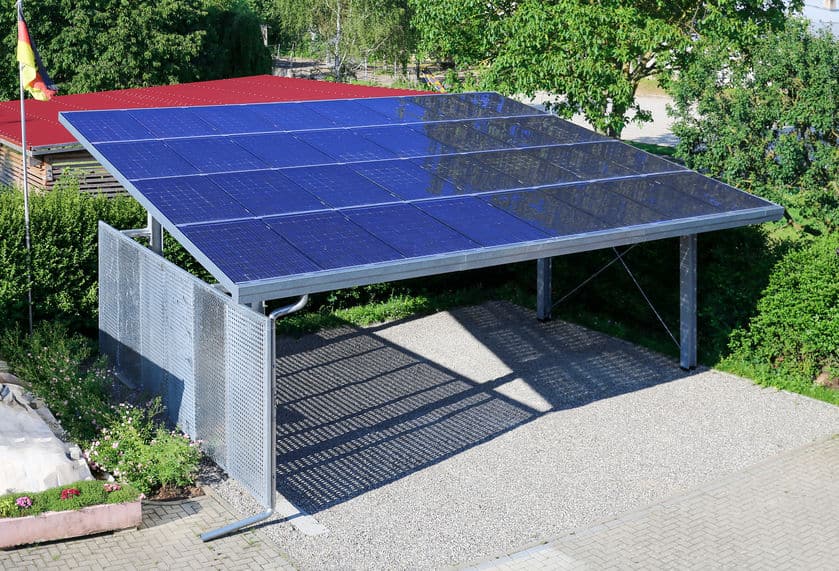
If you’re looking for something to protect your RV from potential thieves, however, you’ll need something fully enclosed with a door you can lock.
What Kind of Roof Do I Want?
Believe it or not, the type of roof you choose for your carport matters more than you might think. It will not only affect the price of your carport, but how well it’ll hold up against the elements as well.
There are three roof types to consider when buying a carport; regular, vertical, and boxed eave.
Here’s how each of these types differs from the other:
Regular roofs are the most basic and inexpensive kind of roof available. With this type of roof, the panels are laid on top of the frame horizontally, meaning the ridges created by the roof panels run from one end of the roof to the other. While this roof design is the least expensive, it also tends to accumulate the most debris on top.
Vertical roofs are the most expensive, but because of their design, they’re also the easiest to keep clean. The panels on a vertical roof are laid vertically, meaning the ridges run from the top of the roof down to its edges. This makes the roof less likely to accumulate excessive leaves, branches, or snow.
Boxed eave roofs are similar to vertical roofs in that they both use an A-frame, but the roof panels on a boxed-eave roof are laid horizontally. This gives a boxed-eave roof the same overall appearance as a vertical roof, but vertical roofs are still better when it comes to retaining less debris. However, boxed eave roofs are cheaper than vertical roofs.
RV/Camper Carport Brands
Now that we’ve covered what you should know in general about buying a carport for your RV, let’s get into the actual brands we’ll be talking about today. All of these brands offer a variety of carports to purchase, with different sizes and styles available.
Palram-Canopia
Let’s begin our list with Palram-Canopia. This company primarily makes carports for passenger vehicles, but they do offer one model (the Alpine series) that is intended for RVs.
The Alpine series carport features an aluminum frame, with tough polycarbonate roof panels that are shatter-resistant and allow for a maximum sunlight transmission of 15%. This means that the roof is quite resistant to any debris or sunlight that might otherwise damage your RV.
The Alpine series is available in multiple sizes, ranging from the 166-square foot Alpine 4300 all the way up to the 496-square foot Alpine 12700. Prices for the Alpine series start at just under $3,500 for the 4300.
Metal Carports Direct
Metal Carports Direct is a great company to check out if you’d like to have some variety in terms of the styles available to you. This company has a ton of different options for RV carports, in all three roof styles and in various sizes.
Metal Carports Direct constructs their carports using durable steel frames and steel cladding. Prices are entirely dependent on the size of the carport you want. So if you’re interested in getting a quote for one of their carports, you can check out their site and ask them to give you a quote for the carport you want.
Carport Central
Carport Central is another company that offers a solid amount of variety in terms of their available products. Aside from standard RV carports, they also offer covers designed to fit over a residential trailer and RV carports with a built-in utility shed, among other items.
All of their carports use steel frames, and multiple roof styles and other customization options are also available. Because each carport they build is a custom piece, prices can vary greatly, so you might want to get in touch with them and ask for a quote on the specific carport you’re interested in.
Absolute Steel
Absolute Steel is another solid option if you’re seeking a company to build a custom carport for your RV. Like some of the other manufacturers on this list, every carport this company produces uses a sturdy steel frame, and a huge range of carport lengths are available, from as short as 12 feet to as long as 200 feet.
Once again, prices vary greatly depending on the size and design of the carport you want, as well as where you plan to install it. If you’re looking for a ballpark figure on the price of a new carport from Absolute Steel, your best bet is to head to their site and request a quote.
Alan’s Factory Outlet
Alan’s Factory Outlet is a great company to check out if you want an easy and straightforward buying experience. They offer simple but solidly built steel carports with all three roof styles, and they also offer free delivery and installation for any carport they sell.
Unfortunately, Alan’s Factory Outlet doesn’t seem to do custom jobs, but the upside to this is that it makes it a lot easier to determine how much your carport will potentially cost.
Prices start at just under $1,300 for the smallest carport they sell, and top out at just under $5,000 for the largest one with a vertical roof.
Grizzly Shelter Ltd.
Grizzly Shelter Ltd. is a Canadian distributor of various carport brands; currently, they’re an authorized dealer of ShelterLogic, Palram, and Greenworks products. If you’re looking for a good place to compare carports from a few manufacturers at the same time, this is a good place to do it.
Grizzly Shelter Ltd. doesn’t offer custom-made carports, but once again this makes it a lot easier to give determine how their products are usually priced. For the smallest RV carport, they offer, which is 14′ x 20′ x 14′, prices start at just over $4,200 CAD.
ShelterLogic
Last but not least, we have ShelterLogic. ShelterLogic is actually the parent company of a number of other brands that produce carports, so there’s a lot of variety to be found here.
ShelterLogic offers all kinds of carports made with a variety of materials, from simple fabric and portable carports all the way up to heavy-duty metal carports.
Multiple sizes of RV carports are available too, with prices starting at $3,659 for the smallest one.
Want to know more about carports? -Stick around and check out these similar reads.
Are Carports Trashy? (7 High End Carports You’ll Love!)
Are Harbor Freight Carports Any Good? 6 Facts You Should Know
How To Raise & Jack up Carports (Metal & Wood Varieties explained)

